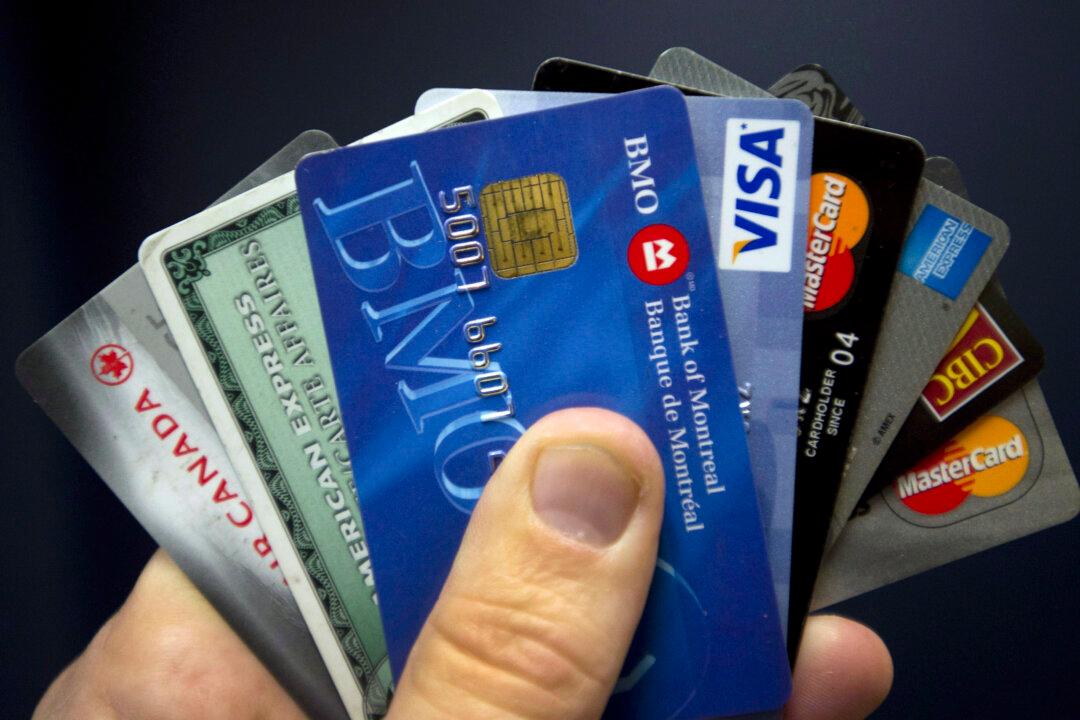Regulating minimum payments on credit cards could benefit some consumers by reducing interest charges while causing others to become delinquent, a Bank of Canada study suggests.
Requiring cardholders to make higher monthly payments could help reduce consumer debt, the study said, as first reported by Blacklock’s Reporter.





